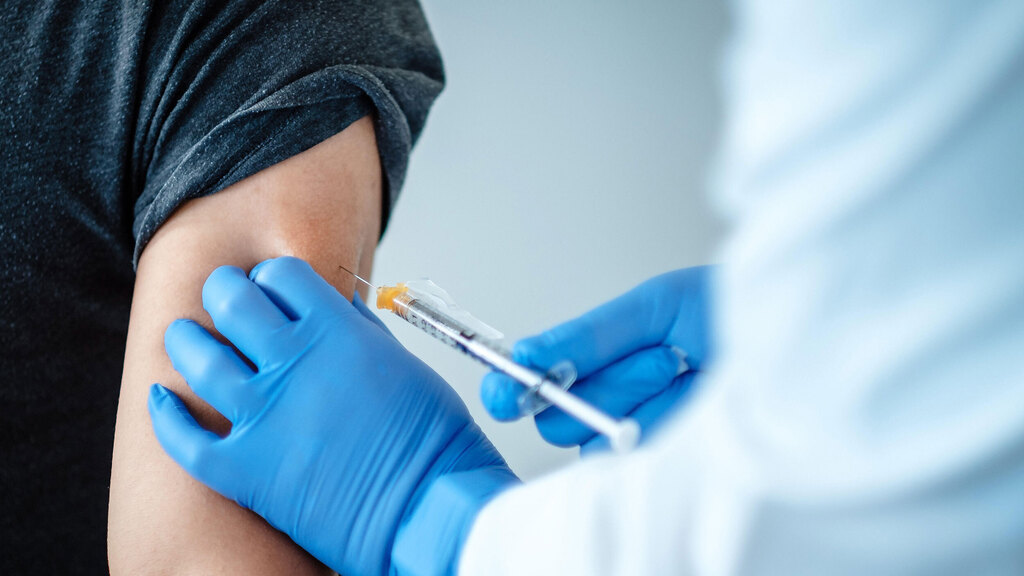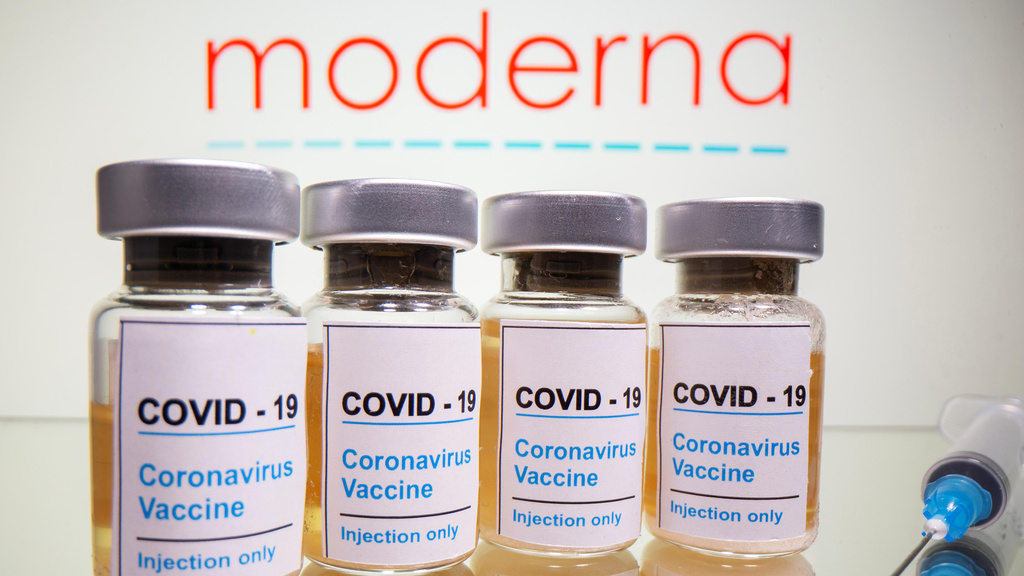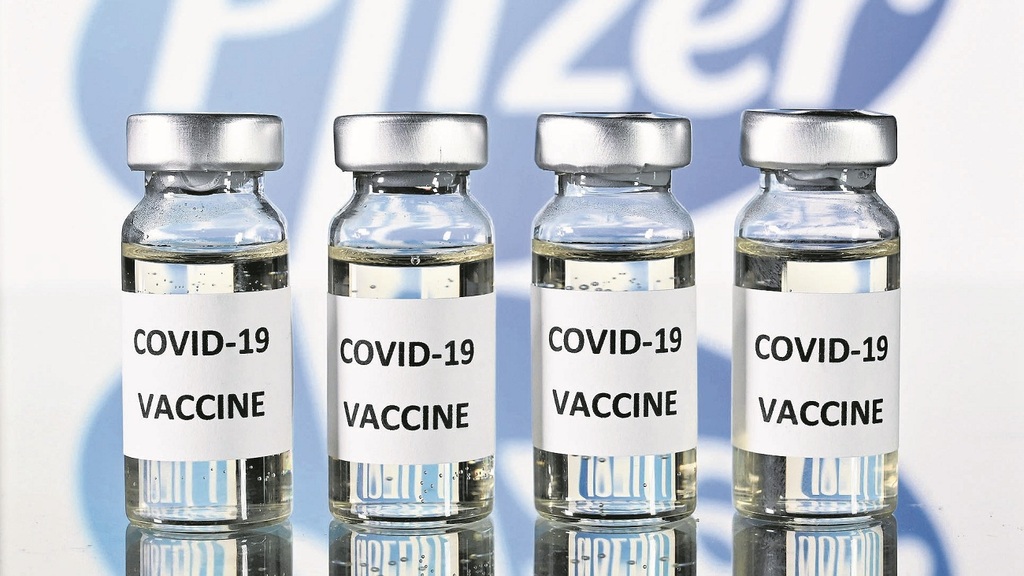Israel could begin administering coronavirus vaccines within three weeks provided the U.S. Food and Drug Administration authorizes them for use.
Israeli health maintenance organizations have already begun preparing for a mass vaccination effort to inoculate tens of thousands of people a day.
With the hope that an end to the pandemic is in sight, many Israelis still have questions about the vaccines, which we aim to address here.
When will vaccines arrive in Israel?
The FDA is likely to discuss approval of the Pfizer vaccine later this week and its panel of experts will begin reviewing the Moderna vaccine one week later.
It is a strict regulatory body and, despite pressure from the White House and anticipation from around the world, it is conducting a meticulous review of the relevant data before issuing its approval.
Israel, like many other countries has decided to rely on the FDA approval process and will allow the use of the vaccines once they are approved.
Hundreds of doctors, statisticians and scientists are asked to review thousands of pages of data before they can grant their approval. But that is not enough.
Who can't take it?
With their emergency use authorization, the FDA will publish clarifications regarding those that should not receive the vaccine at this stage - such as pregnant and breast-feeding women, babies and young children – simply because those members of the population were not included in the human trials conducted by the vaccine manufacturers.
Until more information is obtained pertaining to those members of the population, they will be required to continue to wear masks, socially distance and maintain a high level of hygiene.
An optimistic prediction sees the Pfizer vaccine approved within a matter of days and the first doses of it administered in the 24 hours after approval.
How will the vaccination effort be carried out?
The HMOs will be responsible for administering vaccines in public auditoriums in order to maintain the proper temperature needed to store the vials and administer them quickly.
The Pfizer/BioNTech vaccine must be stored in -70°C and the Moderna vaccine requires storage at -20° C.
The public will be able to schedule a time to receive the vaccine via the smartphone app for their respective HMOs.
Both the Pfizer and the Moderna vaccines are given as an injection to the arm, and at this point only to people over the age of 18.
What is the order of priority?
The vaccine will first be given to nurses, doctors, paramedics and medics as well as those caring for the elderly and vulnerable population, as they are most likely to come in contact with COVID-19 carriers. They will also be seen to act as an example for members of the public who may still be apprehensive about receiving the shot.
The next to receive the vaccine will be those over 80, then over 75s and finally those over 65 years of age.
The Health Ministry has prepared a list of criteria for receiving an early vaccine according to age and comorbidities, with the purpose of vaccinating those most at risk first.
Comorbidities that will mean a swift vaccine include high blood pressure, heart disease, lung disease and thrombophilia (which increases risk of thrombosis).
The rest of the public will be invited to receive a vaccine according to age.
Do people who have already had COVID-19 need a vaccine?
There is no clear answer. On one hand, people who were infected by the virus have antibodies that protect them but on the other hand research has shown that the level of antibodies drops over time and there are known cases of a second contagion within months.
Health experts believe most people who have contracted the virus have sufficient anti-bodies for at least six months so they would probably be offered the vaccine after the rest of the population has received their dose.
How does one feel after the vaccine?
Both the Pfizer and Moderna vaccines cause a reaction. Some people will feel muscle pain where they were injected, perhaps some redness and fever for a number of days.
The vaccine may cause some fatigue and weakness, which like the fever will pass within hours.
All side-effects are temporary and do not pose any danger. There have been no reported cases of severe side effects.
Why is the shot administered into the muscle?
The vaccine enters the body gradually and allows the immune system to reach the site of injection and begin to produce the necessary defense against the virus. This could take days or weeks.
A shot under the skin would be inefficient because there are not enough blood vessels to induce the inflammation that prompts the immune response.
Administering the vaccine directly into a vein is dangerous as it can cause a life-threatening allergic reaction.
Is one shot enough?
NO! Both Moderna and Pfizer/NBioTech require a booster shot in order to be effective and remain so for months. Moderna's booster shot is given precisely 21 days after the first vaccine and Pfizer's booster shot is administered after 28 days.
One dose is not enough to protect against the coronavirus. In future, perhaps one will be sufficient - as was the case with the flu shot, where children were first given two shots a year and later only one. This will be determined in the coming months of research.
Can the vaccine cause COVID-19?
No. There is no live matter in the vaccine. There is no virus or bacteria and it cannot cause COVID-19. The side-effects that were reported were the result of the body's immune system responding to the vaccine.
What happens in the body once the vaccine is administered?
The mRNA that is in the Moderna and Pfizer vaccines instructs the body's immune cells to create a fake virus surrounding them. The immune system is fooled into thinking that cells are an intruding virus and attacks them.
Billions of white blood cells head towards the injection site, convinced there is an intruder in the body and intending to destroy it. To help them along, cytokines and interleukins - which contribute to the immune response - are secreted, causing an inflammation and making the site of the injection into a kind of war zone.
Over the next few days, the war will continue. More and more red and white blood cells flow to the area and create antibodies and T cells that are needed to create an immune memory. Meanwhile, the white blood cells will trap parts of the vaccine that has been mistaken for the virus and remove it from the body.
The side effects from the vaccine are all a result of the war being waged with the alleged intruding coronavirus. The arm that was vaccinated could swell and the area could be red and warm, causing the body temperature to rise as well and the recipient of the vaccine to feel some sense of weakness and cold-like symptoms.
There may be some discomfort or pain in the muscle area as well.
When will those receiving the vaccine be immune to the coronavirus?
Some immunization begins two weeks after receiving the vaccine but that is not a sufficient level of safety.
People will be immune to coronavirus two weeks after the booster shot of both the Moderna and Pfizer vaccines, which for Moderna is three weeks after the initial jab and for Pfizer four weeks.




